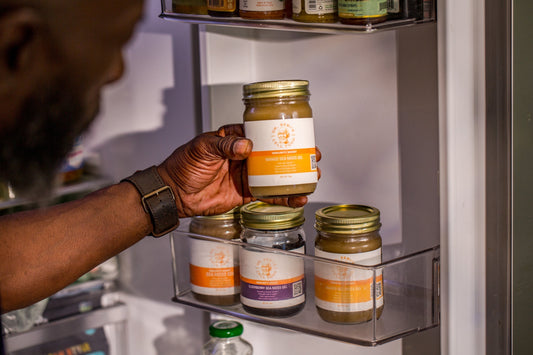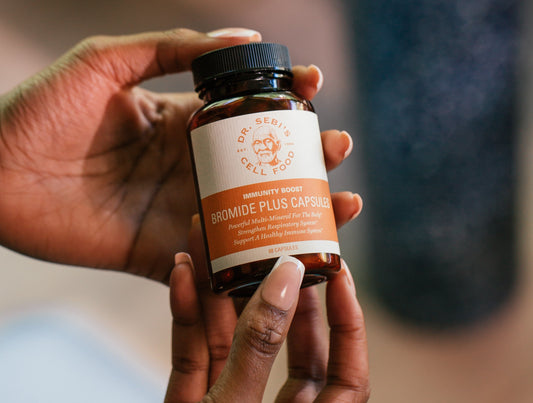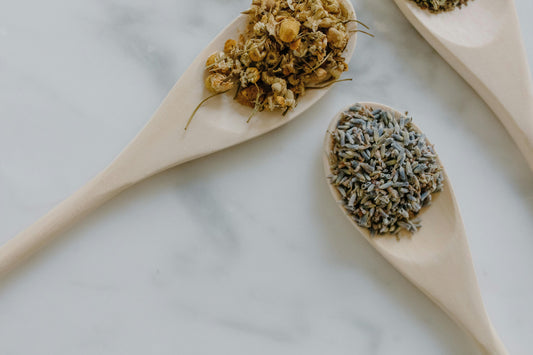With pollen swirling and COVID-19 still looming, sniffles and coughs can trigger a wave of uncertainty. According to the Mayo Clinic, allergy symptoms such as sneezing, coughing, and itchy eyes can overlap with early COVID-19 symptoms, complicating the diagnostic process.
Here's how to discern if the symptoms you’re experiencing are seasonal allergies or something more serious.
Allergies vs. COVID-19
When trying to distinguish between allergies and COVID-19, it can be challenging to discern between the two, especially in the absence of a fever.
Here’s a quick overview of the difference: Allergies typically manifest with sneezing, itchy eyes, and a runny or stuffy nose, while COVID-19 often presents with symptoms like fever, cough, shortness of breath, and loss of taste or smell.
Below are more detailed lists of the common symptoms of each. If you're still unsure, see your doctor or other healthcare professional for further evaluation.
Allergy Symptoms
According to Yale Medicine, some common symptoms of allergies include:
- Sneezing
- Runny or stuffy nose
- Itchy or watery eyes
- Itchy throat or ears
- Coughing
- Fatigue
- Headache
- Dark circles under the eyes (allergic shiners)
- Skin rash or hives
- Difficulty breathing or wheezing (in severe cases)
Common Symptoms of COVID-19
According to the Centers for Disease Control and Prevention (CDC), some possible signs of COVID-19 include:
- Fever or chills
- Cough
- Shortness of breath or difficulty breathing
- Fatigue
- Muscle or body aches
- Headaches
- New loss of taste or smell
- Sore throat
- Congestion or runny nose
- Nausea or vomiting
- Diarrhea
Children vs. Adults
It’s important to note that there can be differences in the symptoms of COVID-19 and seasonal allergies between children and adults.
While many symptoms may overlap, children with COVID-19 are more likely to have symptoms such as fever, cough, and vomiting, per Johns Hopkins Medicine, whereas symptoms like nasal congestion and runny nose are more common in children with allergies, per the American College of Allergy, Asthma and Immunology.
How to Prevent COVID-19
To reduce the risk of infection from COVID-19, you should adopt several preventive measures to boost your immune system. These include:
Practice Good Hand Hygiene
Wash your hands frequently with soap and water for at least 20 seconds, especially after being in public places or touching surfaces. If soap and water are not available, use a hand sanitizer containing at least 60% alcohol, per the U.S. Food and Drug Administration.
Wear a Mask
Wear a mask that covers your nose and mouth when you're in indoor public settings or crowded outdoor spaces, especially where social distancing measures are challenging to maintain, according to the Mayo Clinic.
Maintain Physical Distancing
Stay at least 6 feet away from individuals who are not from your household, especially in crowded or poorly ventilated areas, per the World Health Organization.
Practice Respiratory Etiquette
Cover your mouth and nose with a tissue or your elbow when coughing or sneezing. Dispose of used tissues immediately and wash your hands afterward.
Clean and Disinfect
Regularly clean and disinfect frequently touched surfaces and objects in your home and workplace.
Monitor Your Health
Stay vigilant for symptoms of COVID-19, such as fever, cough, shortness of breath, fatigue, muscle or body aches, headache, sore throat, loss of taste or smell, congestion, nausea, or diarrhea. If you experience symptoms, seek medical advice and get a COVID-19 test as soon as possible.
Try: Dr. Sebi’s Full-Spectrum CBD Products
How to Prevent Seasonal Allergies
Preventing seasonal allergies and reducing the severity of allergic reactions means taking proactive steps to minimize exposure to allergens. Here are some helpful strategies:
Monitor Pollen Counts
People with allergies should stay informed about pollen counts in your area by checking local weather forecasts or pollen tracking websites like Weather.com. Limit outdoor activities on days when pollen levels are high, particularly during peak pollen seasons.
Keep Windows Closed
Keep windows and doors closed, especially during periods of high pollen levels, to prevent pollen from entering your home. Use air conditioning with a high-efficiency particulate air (HEPA) filter to help filter out allergens from indoor air.
Use Allergy-Proof Bedding
Encase pillows, mattresses, and box springs in allergen-proof covers to prevent exposure to dust mites, pollen, and other allergens while sleeping.
Practice Good Indoor Air Quality
Vacuum carpets and upholstery regularly using a vacuum cleaner equipped with a HEPA filter to remove allergens. Dust surfaces with a damp cloth and clean or replace air filters in HVAC systems regularly to maintain clean indoor air.
Limit Outdoor Exposure
Minimize outdoor activities, especially in grassy areas, on windy days, or during early morning and evening hours when pollen levels are typically higher.
Use Saline Nasal Irrigation
Rinse your nasal passages with a saline solution using a neti pot or nasal irrigation system to flush out allergens and relieve nasal congestion and irritation, recommends the Cleveland Clinic.
Avoid Allergen Triggers
Identify and avoid specific allergens that trigger your allergic reactions, such as pet dander, mold, or certain plants, to minimize exposure and prevent allergic symptoms.
Consult an Allergist
If you experience persistent or severe allergic symptoms, consult an allergist or immunologist for proper diagnosis and treatment. Allergy testing can help identify specific allergens that trigger your symptoms, and allergists can recommend personalized treatment options like lifestyle modifications.
Try: Dr. Sebi’s Immune Boost Tea
Frequently Asked Questions
What does the very beginning of COVID feel like?
The onset of COVID-19 often manifests as mild symptoms like fatigue, fever, and a dry cough, resembling a typical cold or flu, per Medical News Today. However, it can escalate into severe respiratory distress, causing difficulty breathing and requiring medical attention.
What's the difference between COVID-19 and the common cold?
COVID-19 symptoms commonly include fever, persistent cough, and shortness of breath, while the common cold typically presents with milder symptoms such as a runny or stuffy nose, sore throat, and occasional mild cough, per the Mayo Clinic. Additionally, COVID-19 may cause loss of taste or smell.


















































